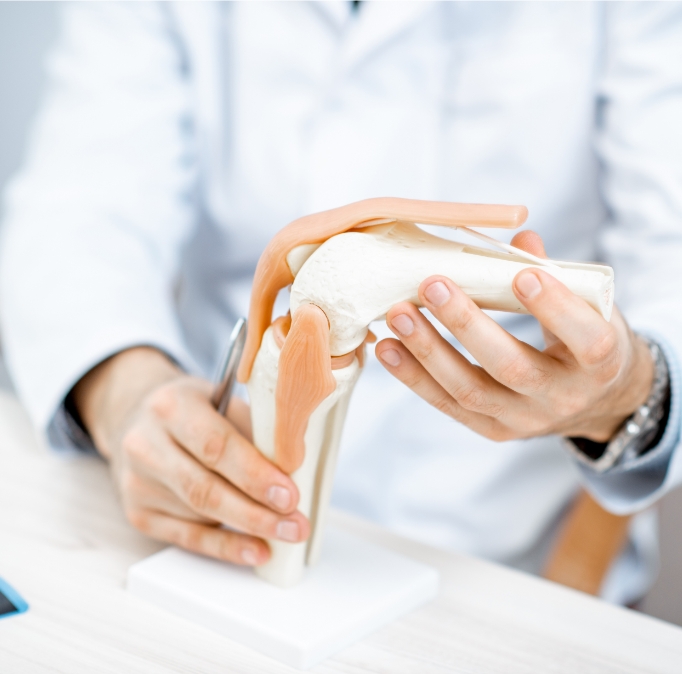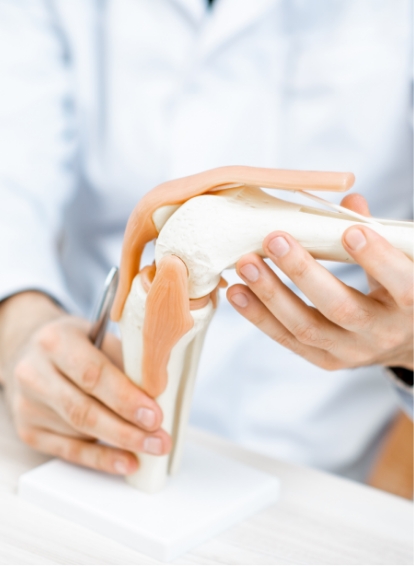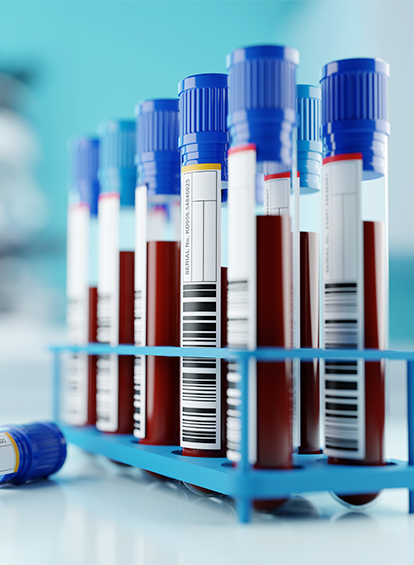Sports & Non-Surgical Orthopaedic Treatments
Gout
Gout is a type of inflammatory arthritis characterised by sudden, severe pain, redness, and swelling in the joints, most commonly in the big toe. It is caused by a build-up of uric acid in the blood, which forms sharp crystals in the joints. These episodes, called flare-ups, can be extremely painful and may recur over time, affecting other joints if left untreated.
At The Clinica, our Sports & Non-Surgical Orthopaedic specialists offer personalised treatment plans to manage gout effectively, helping patients alleviate pain, reduce inflammation, and prevent future flare-ups for improved quality of life.

What is it?
Gout is a painful form of arthritis resulting from the accumulation of uric acid in the blood. Uric acid is a waste product formed when the body breaks down purines, substances found in certain foods and drinks. When there is too much uric acid, it crystallises and deposits in the joints, leading to intense inflammation and pain. Gout often affects the joint at the base of the big toe, but it can also impact other joints, including the ankles, knees, wrists, and elbows.
Gout attacks, or flare-ups, typically occur suddenly, often at night, and can last for days or even weeks. The affected joint becomes red, swollen, and extremely tender, making movement painful and difficult. While gout primarily affects middle-aged and older adults, it can occur at any age, particularly in individuals with high uric acid levels due to dietary or lifestyle factors.
Without treatment, gout can lead to more frequent and severe attacks, as well as joint damage. Early intervention and lifestyle changes are essential to managing the condition effectively and preventing future complications.
Book an appointment
Additional Information

Causes of the condition
Gout is primarily caused by high levels of uric acid in the blood, a condition known as hyperuricemia. Uric acid accumulates when the kidneys are unable to excrete it efficiently or when an individual consumes excessive purine-rich foods, such as red meat, shellfish, alcohol, and sugary drinks. The resulting uric acid crystals form in the joints, triggering inflammation and severe pain.
Certain risk factors increase the likelihood of developing gout, including genetics, obesity, high blood pressure, diabetes, and kidney disease. Men are more likely to develop gout than women, as they typically have higher levels of uric acid. Age also plays a role, with gout being more common in older adults. Lifestyle factors, such as a sedentary lifestyle and excessive alcohol consumption, can also contribute to elevated uric acid levels.
In some cases, medications like diuretics and aspirin may affect uric acid levels, further increasing the risk of gout. Managing these contributing factors is vital to reducing the frequency and severity of gout attacks.
Tests that can be done to confirm the condition
Diagnosing gout typically involves a physical examination of the affected joint, where the clinician will check for signs of inflammation, swelling, and tenderness. A thorough review of the patient’s medical history, including lifestyle and dietary habits, helps identify potential risk factors. To confirm gout, additional diagnostic tests may be recommended.
Blood tests are commonly performed to measure uric acid levels, though high levels do not always indicate gout. Joint fluid analysis, where a small sample of fluid is extracted from the affected joint, can provide a definitive diagnosis by detecting the presence of uric acid crystals. This test is particularly useful in distinguishing gout from other forms of arthritis with similar symptoms.
In some cases, imaging tests like X-rays, ultrasound, or dual-energy CT scans may be used to identify crystal deposits in the joints or surrounding tissues. These tests are valuable for assessing the extent of the condition and ruling out other possible causes of joint pain.
Effective treatments
Treatment for gout aims to relieve pain during flare-ups, reduce inflammation, and prevent future attacks by managing uric acid levels. During an acute attack, resting the affected joint and applying ice can help reduce swelling and alleviate pain. Nonsteroidal anti-inflammatory drugs (NSAIDs), corticosteroids, or colchicine may be prescribed to manage the pain and inflammation associated with gout flare-ups.
Long-term management of gout focuses on lifestyle modifications and medications to lower uric acid levels. Dietary changes, such as reducing consumption of purine-rich foods and limiting alcohol intake, can significantly decrease uric acid levels. Drinking plenty of water and maintaining a healthy weight are also essential lifestyle strategies to manage gout effectively.
Medications like allopurinol or febuxostat may be prescribed to reduce uric acid production, while others, like probenecid, increase uric acid excretion. These medications help prevent future gout attacks by keeping uric acid levels within a healthy range. Regular check-ups and uric acid monitoring are vital to ensure the condition remains under control.
Book an appointment for the initial consultation
Booking an initial consultation at The Clinica is the first step towards managing gout effectively. During this appointment, our specialist will perform a comprehensive evaluation, review your medical history, and discuss your symptoms to determine potential triggers and contributing factors. A thorough examination of the affected joint helps in confirming the diagnosis and assessing the severity of the condition.
If needed, diagnostic tests such as blood tests or joint fluid analysis will be arranged to confirm gout and assess uric acid levels. Based on the findings, a personalised treatment plan will be developed, focusing on pain relief, lifestyle changes, and strategies to prevent future flare-ups, ensuring a structured approach to managing gout.
Frequently Asked questions
While there is no cure for gout, the condition can be effectively managed with medication, lifestyle changes, and regular monitoring to reduce symptoms and prevent flare-ups.
Foods high in purines, such as red meat, shellfish, alcohol, and sugary drinks, should be limited, as they can raise uric acid levels and trigger gout attacks.
Drinking plenty of water, reducing alcohol intake, and maintaining a healthy weight can help manage gout naturally. However, medication is often required for effective long-term management.
A gout flare-up can last anywhere from a few days to a week or longer if left untreated. Medications can help reduce the duration and severity of the attack.
Long-term medication may be recommended for individuals with recurrent gout attacks or high uric acid levels. Your clinician will assess your needs and adjust the treatment plan as necessary.
Specialised Clinics
General Enquiries
Please send your enquiry to us and our Practice Manager will be in touch shortly. Alternatively, if you would rather speak to us or your enquiry requires our urgent attention, please call us on 01344 946363.








